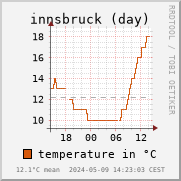I plan to go to two upcoming debian/FLOSS events, & I'd rather go by
train than by plane or car. & that's quite difficult, in central europe,
in 2020.
the events I want to go to are:
- FOSDEM, the "free & open source
developers' european meeting", the probably hugest FLOSS conference in
europe, held in bruxelles, belgium; with a
MiniDebCamp
before.
- SnowCamp,
a small cosy DIY MiniDebCamp in laveno-mombello, italy.
now what about the trains? bruxelles is the capital of europe, &
laveno-mombello is just approx. 400 km from here (i.e. closer than the
capital of my country). still, no train company would sell my a ticket to
these destinations.
no train company? well that's slightly exaggerated. for one of the
destinations (bruxelles), one company (DB) would sell me a ticket, if I
trick the web interface into showing me the connection I want by adding some
'via' entries with appropriate durations. ÖBB fails because it doesn't sell
thalys tickets, & also no ICE tickets, for the last leg. – so either
DB with some trickery, or ÖBB plus either thalys or DB, & hope that
there are no delays.
ÖBB is also very proud of their new nightjet connection to bruxelles (from
vienna & innsbruck), starting in january 2020. what they don't announce
widely is that this train goes only 2 times per week. (of course not the
days I need.)
for the trip to laveno-mombello I could either go via verona/milano &
buy a ticket from ÖBB until verona & a ticket (actually three) from
trenitalia for the rest; or go via switzerland & buy a ticket from ÖBB
until bellinzona, a ticket from SBB for the 10+ minutes to cadenazzo, &
a ticket from trenord from cadenazzo until laveno-mombello. (that's already
the summary; neither ÖBB nor DB nor SBB nor trenitalia nor trenord would sell me
a ticket for the whole journey. trenitalia also doesn't know cadenazzo, btw.
ÖBB would also sell me a ticket to cadenazzo, it's just roughly
100 EUR more expensive than the sparschiene-ticket to bellinzona.)
two years ago I did
the former; & 8 of the 8 trains were delayed on departure or arrival or
both. obviously the trip with its three changes per direction took almost
twice the time of just taking the car.
last year, a friendly soul picked me up with their car after one train trip,
& probably we'll do it the same way again this year.
so what is it that I want to say?
first of all I'm looking forward to the MiniDebCamp+FOSDEM &
to SnowCamp, & I thought I should promote those events a bit more :)
& second, the state of train companies in europe is a big FAIL:
- ÖBB & DB on the one hand, & trenitalia on the other hand have
some fight since a couple of years; they don't even list each others' train
connections in their respective online schedule, let alone offer tickets;
& there are also less&less connections on the
münchen/innsbruck/verona route;
- ÖBB (in its terrible new app/website) happily shows connections for
which they then don't sell tickets ("attention: ticket only covers part of
the journey");
- SBB & DB happily let you spend lots of time in their online ticket
webapps, & then are very sorry in the end that they can't sell you the
ticket you've clicked together;
- I'm aware that there are still "national" train companies, & that
there are still so-called "borders" between so-called "nation states" but
frankly, I don't care about either;
- mostly because those virtual lines on the maps have no significance to
me; but also practically because in a part of the world where there are so
many of them close to each other it's just ridiculous that they have any
practical impact on travelling by public transport (remember, going to
laveno-mombello via the "west route" I go through austria, liechtenstein,
switzerland, & italy; for just roughly 400km);
- I mean there's schengen, & at least until 2015 noone asked for any
passports on these routes; still the train companies have the tunnel vision
of their "national" territory;
- I don't want to spend literally hours on more or less (typically more)
broken train company websites to find out about possible connections &
typically find no possible tickets for those connections;
- if I want to go from A to B in europe, I want to go to
one website & just buy the
<insert-appropriate-adjective-here> ticket there;
- either one of the legacy national ones or a combined european train
system website (btw, rail_dot_eu & train_dot_eu are both squatted);
- & don't tell my about trainline.eu etc., they don't know about half
of the existing connections;
- interim summary: can I please just buy a train ticket? could you please
just take my money?;
- in the end this is a political question. the EU has regulated roaming
mostly successfully (crossing the swiss border: calls 2 EUR/min. out,
1 EUR/min. in, sms: 0.4 EUR, data: 1.5 EUR/100kb (!));
- it's about time that the EU regulates "cross-border" train travel as
well;
- & I'm not talking about prices, I JUST WANT TO BUY A TICKET FROM A
TO B ON ONE WEBSITE; pretty please; in europe; in 2020.
ok, end of rant.
& I'm looking forward to the aforementioned events, even if it's a
major pain to sort out the transportation to get there.
(could we have teleportation please? the quantum physicists say no. too
bad.)
update 2020-01-06: for the trip to bruxelles, I ended up buying a
nightjet ticket from ÖBB, & a thalys ticket directly from thalys. let's
hope I don't miss a connection …



